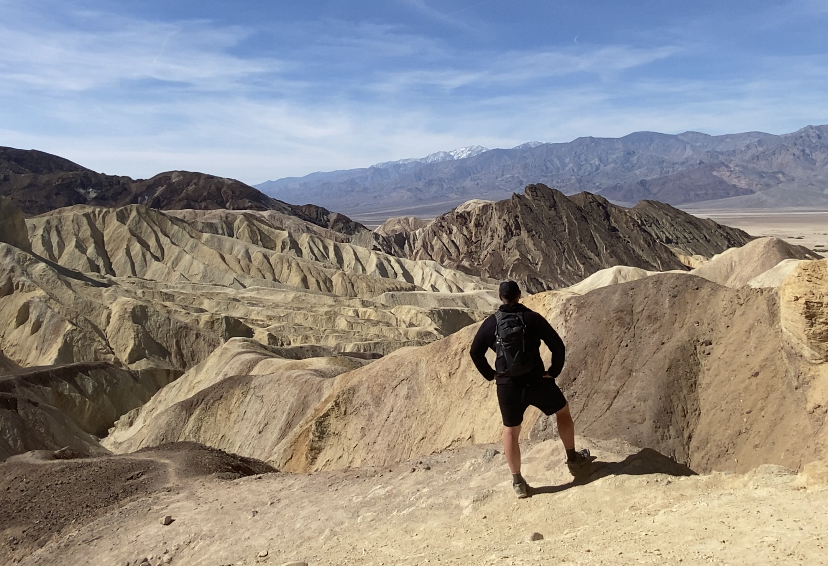It’s easy to feel intimidated by hiking, especially if you’re just starting out and you have no friends or family who are into the activity. But it doesn’t have to be that way! Preparation is everything. It’s true for hiking and it’s true for life. With these ten tips, you can have your first successful hike in no time at all, feeling confident and comfortable to get you ready for the outdoors.
1. Let Someone Know Your Plans
If you’re going to be heading out into nature, whether it’s alone or with friends, it’s important to let someone know where you’re going and when you expect to return. Many people have disappeared while hiking in recent years; all of them were reported missing because they didn’t tell anyone what they were doing or where they planned on going. Don’t be another statistic; never go hiking alone, and not tell someone else where you plan on being.
2. Pick the right time
Your first hike should happen when you’re feeling confident, comfortable and ready to enjoy yourself outdoors. For some people, that may mean leaving at noon on a Wednesday; others might be content to wait until they can leave on Saturday morning. If you’re not sure which day is best for your first hike, check local park websites for time restrictions. The point is to leave yourself with no option but success. Find someone to join you: No one should embark on their first hike alone.
3. Check The Weather
Before heading out, take a quick look at what Mother Nature has in store. Check for any rain or snow storms that might be on the way. It’s important to choose clothing that will keep you warm when temperatures fall but doesn’t make you sweat buckets. Layering is your friend here: Wear multiple layers that are easy to peel off if it gets hot, then replace them if it starts getting cold again. If weather is not cooperating plan for a day when the weather is going to be nice and not so unpredictable.
4. Find an easy trail to start
Since you have never hiked before, it’s best to start on an easy path to get a feel for what hiking is like. You can find trails suitable for beginners by searching online or checking with your local park ranger or downloading an app such as All Trails.
5. Find Experienced Company
Whether you’re tackling a 5-mile walk or a 100-mile trek, it helps to have an experienced companion. More so than other outdoor activities, hiking can be dangerous and tiring—you don’t want to make any rookie mistakes your first time out. Bring along someone who has some hiking experience and isn’t easily fatigued; that way, you can enjoy your hike to its fullest without worrying about keeping up with your partner.
6. Wear Clothing Suitable for the Weather
You may think you’re prepared for anything when venturing out into nature, but what happens if it rains or snows? This goes back to being prepared. By having clothing that can handle weather changes, you won’t need to cut your hike short just because it got colder than expected. Layering is important, so bring along clothes that can adapt to different temperatures. If conditions are variable and/or unpredictable, bring along more layers and extra socks.
7. Pack Plenty of Water

Nothing is worse than feeling dehydrated while you’re out in nature, so always make sure to pack a bottle of water with you on your hike. It’s better to have too much than not enough. Some hiking trails are easier and shorter than others, but that doesn’t mean they don’t take more energy—and more water—to complete. Always bring along an extra bottle of water in case of emergencies or if someone else needs one.
8. Come Prepared With a Map and Trail Details
Before you set out on your hike, make sure you have a map and know where you’re going. Gather information about terrain, wildlife and weather conditions along your route so that you can be prepared when unexpected things happen. Remember to consider any pre-existing medical conditions or hiking experience levels when planning your hike.
9. Pack the correct hiking gear
Before you take to the trail, make sure that you have all of your necessary gear. The right boots will keep your feet comfortable and protected. You’ll also want to remember sunscreen and bug spray, as well as anything else you may need, such as water or snacks. If you aren’t sure what hiking gear is required, just ask someone at a local outdoor shop. They can help you pick out everything you need, so don’t worry about getting stuck with sub-par supplies.
10. Practice Leave No Trace
One of the most important aspects of hiking responsibly is practicing Leave No Trace. It’s better to practice these habits before you go out on your first hike so that you don’t forget about them. This means packing out all your trash, taking special care not to rip up trails and not disturbing any animals or plants along your way.
Having had your first hike is like having won a marathon, which means you’re ready to tackle any mountain with confidence. Start slowly and build up, because you don’t want to be sore or injured right off the bat. Before long, you’ll be hiking like it was nothing! Happy Hiking!
